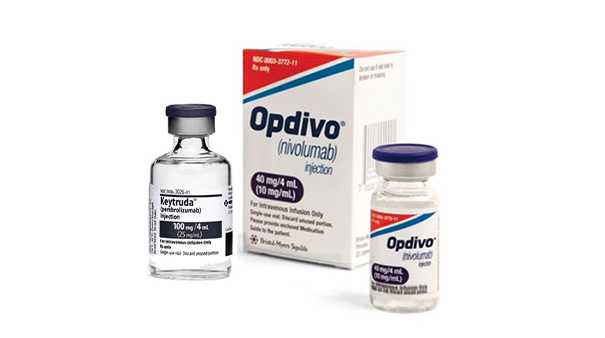BMS' Opdivo/Yervoy combo hits a snag in adjuvant melanoma

Bristol-Myers Squibb's checkpoint inhibitor combination of Opdivo and low-dose Yervoy is key to its future plans in immuno-oncology, but has just had a setback.
The company says the first readout from the CheckMate-915 trial showed the combination didn't improve on PD-1 inhibitor Opdivo (nivolumab) given on its own in patients with high-risk melanoma who had been treated with surgery and whose tumours expressed low levels of the PD-L1 biomarker (less than 1%).
In this adjuvant treatment setting – which aims to reduce the risk of the cancer returning after complete surgical removal of the tumour – giving CTLA4 inhibitor Yervoy (ipilimumab) alongside Opdivo wasn’t able to extend recurrence-free survival.
BMS says it is continuing the study to see if the two-drug regimen has a benefit in the overall ‘all-comer’ study population, which includes patients with a full spectrum of PD-L1 expression levels.
Efficacy in patients with higher levels of PD-L1 expression could rescue the trial, but for now the prospects for BMS of expanding use of the combination beyond its currently-approved indication of metastatic or unresectable melanoma – in other words those not eligible for surgery – are on hold.
Opdivo was approved as a second-line monotherapy for melanoma in 2014 – its first-ever approval – and the duo with Yervoy was cleared a year later.
Opdivo is also approved for adjuvant use on its own, getting an FDA green light in post-surgery use at the end of 2017 on the back of the CheckMate-238 trial. That study showed Opdivo worked better than Yervoy at preventing recurrences of the skin cancer.
CheckMate-915 was originally supposed to compare the combination with Opdivo and Yervoy both given alone, but the Yervoy arm was dropped after the results of CheckMate-238 came out.
With Opdivo’s sales growth starting to stall – mainly because it has struggled to make headway in non-small cell lung cancer – BMS has turned to the combination with low-dose Yervoy to try to expand its use, often as an alternative to chemotherapy-based cancer regimens.
That strategy looks like it may pay off in previously-untreated NSCLC, where Opdivo has lost out to main rival Keytruda (pembrolizumab) from Merck & Co/MSD. Last month, the CheckMate-9LA trial showed Opdivo/Yervoy plus chemotherapy improved overall survival compared to chemotherapy alone, reinforcing earlier results in CheckMate-227.
The dual regimen has also shown promise in hepatocellular carcinoma – the most common form of liver cancer – and earlier this year secured an approval in renal cell carcinoma, a type of kidney cancer.
Melanoma has underpinned a sizeable portion of Opdivo and Yervoy sales, but BMS hopes of moving it into a larger eligible patient population now look shaky.












